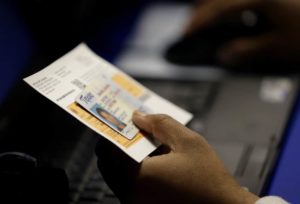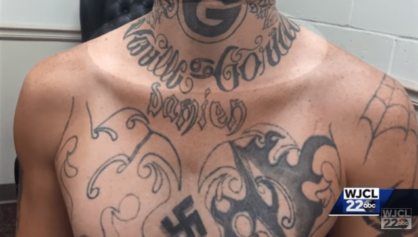
U.S. District Judge Nelva Gonzales Ramos rejected changes signed by Republican Gov. Greg Abbott this summer as not only lacking but also potentially chilling to voters because of new criminal penalties. (AP Photo/Eric Gay, File)
AUSTIN, Texas (AP) — A federal judge who has compared Texas’ voter ID requirements to a “poll tax” on minorities once again blocked the law Wednesday, rejecting a weakened version backed by the Trump administration and dealing Texas Republicans another court defeat over voting rights.
U.S. District Judge Nelva Gonzales Ramos rejected changes signed by Republican Gov. Greg Abbott this summer as not only lacking but also potentially chilling to voters because of new criminal penalties. The new version didn’t expand the list of acceptable photo identifications — meaning gun licenses remained sufficient proof to vote, but not college student IDs.
Instead, the changes would allow people who lack a required ID to cast a ballot if they signed an affidavit and brought paperwork that showed their name and address, such as a bank statement or utility bill. Those revisions were supported by the U.S. Justice Department, which under President Barack Obama had joined Democrats and minority rights groups in suing over the law.
But that position has changed with President Donald Trump in charge, who has established a commission to investigate allegations of voter fraud in the 2016 elections. In February, the Justice Department abandoned the argument Texas passed voter ID rules with discrimination in mind and said changes signed by Abbott should satisfy the courts.
Texas first passed the voter ID law in 2011, the same year the GOP-controlled Legislature adopted voting maps that were also struck down as discriminatory.
Republican Texas Attorney General Ken Paxton called the latest ruling “outrageous” and said an appeals court should void the decision.
“The U.S. Department of Justice is satisfied that the amended voter ID law has no discriminatory purpose or effect. Safeguarding the integrity of elections in Texas is essential to preserving our democracy,” Paxton said in a statement.
But Gonazles Ramos, who first struck down the law in 2014, said Texas didn’t go far enough with its changes and said that criminal penalties Texas attached to lying on the affidavit could have a chilling effect on voters who, fearful of making an innocent mistake on the form, simply won’t cast a ballot.
Nor was she swayed by Texas clarifying under the revised law, known as Senate Bill 5, that both U.S. passport books and cards would be accepted. “This feature remains discriminatory because SB 5 perpetuates the selection of types of ID most likely to be possessed by Anglo voters and, disproportionately, not possessed by Hispanics and African-Americans,” she wrote.
It was another major ruling over voter ID laws this year. In May, the U.S. Supreme Court shut the door on efforts by North Carolina to revive a state law that mandated voter identification. The Texas voter ID law could now be the high court’s next opportunity to weigh in.
The decision also leaves open the potential of Texas becoming the first state dragged back under federal oversight since the U.S. Supreme Court in 2013 gutted the federal Voting Rights Act, which had required states with troubled racial histories to submit election changes for approval. Gonzales Ramos left that question open for consideration later.
Texas has spent years fighting to preserve both the voter ID law — which was among the strictest in the U.S. — and its voting maps. Earlier this month, a separate federal court found racial gerrymandering in Texas’ congressional maps and ordered voting districts to be partially redrawn before the 2018 elections.
“From discriminatory gerrymandering to discriminatory voter ID laws, it has become entirely clear that Texas Republicans are rigging our election system,” said Gilberto Hinojosa, chairman of the Texas Democratic Party.


